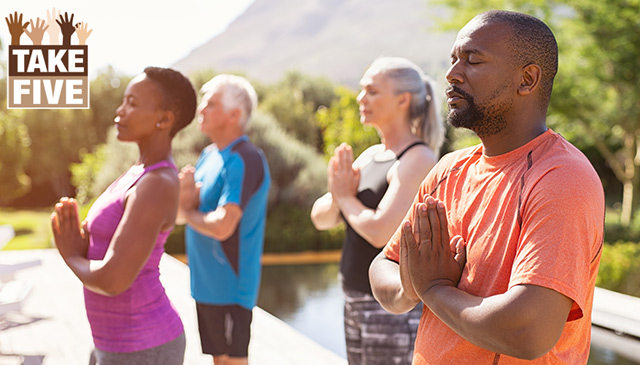
This month we highlight the impact of racial trauma on the well-being of Black people.
The events of 2020, specifically the health consequences of the global pandemic, social distancing restrictions imposed by the pandemic, the highly publicized murders of George Floyd, and Breonna Taylor, the frequent negative and discriminatory rhetoric surrounding the 2020 presidential election and other traumatic events have had a negative impact on the well-being of Black people. All dimensions of wellness (spiritual, social, occupational, physical, intellectual, emotional and financial) can be and have been impacted for Black people who have witnessed or received racial trauma. How does one cope and promote joy and vitality? The Take Five actions below can be a start: (*from https://lifestance.com/blog/racial-trauma-what-it-is-and-how-can-you-heal-from-it/)
- Engage in self-care: This looks different for everyone, but it can include meditation, prayer, healthy eating, and physical exercise.
- Limit news consumption: Of course, it’s important to keep up with current events. However, repetitive coverage of violence against people from the BIPOC (Black, Indigenous, People of Color) community can be traumatizing. Be sure to take a break when you need one.
- Cultivate an excellent support system: Surround yourself with people who will listen to and validate your experiences. And Make a list of things to avoid: If certain people, places, or situations make you feel unsafe, put them on a list. Do whatever you can to avoid anything on the list.
- Recognize and verbalize your feelings: Just getting your emotions off of your chest can make a big difference in how you feel. Whether you confide in a good friend or a therapist, be sure to get it all out.
- Engage in activism: If and when you are able, engage in activism that you feel comfortable with. Doing so can help you connect with the community and work toward anti-racist goals.

